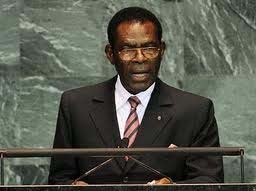Africa: cutting own perch
Union) did, and the principles of the founding fathers. Principles are being sacrificed on the altar of expediency as (late Ghanaian President Kwame) Nkrumah would have said. Because you are being assisted by the West therefore you must bow to the West.
“It’s a terrible, terrible period and it’s a selling out of the principles of the founding fathers.”
These are the words of President Mugabe upon his return on Sunday from the 66th Session of the United Nations General Assembly in New York.
He was talking about what has been taking place in Africa where, only about 50 years into independence, the tide is turning back and the continent teeters on the brink of recolonisation. Libya is one example that has shown the dangerous trend of recidivism as the West used the cover of rag tag rebels to bomb its way into laying claim on Libya and her rich oil resources.
In New York, President Mugabe spoke passionately about Libya – risking being a voice in the wilderness – noting that the bombing by Nato since March 19 had been a means to a recolonisation end.
The “unbelievable and most disgraceful scramble by some NATO countries for Libyan oil”, he said, indicated “that the real motive for their aggression against Libya was to control and own its abundant fuel resources.”
“What a shame!” said President Mugabe.
But there is an even more worrying trend – that of the negation of the principles of the founding fathers of Africa including Kwame Nkrumah. The one aspect of these principles is unity and the belief that when an outside force attacks one African country then the whole of Africa has been attacked.
This was completely out of question that sad day when three African countries abetted the cause of Western countries that had bilateral hatreds and quarrels with, and ulterior motives against Libya.
South Africa, Nigeria and Gabon voted for the United Nations Security Council Resolution 1973 which was used to topple the leadership of Col Muammar Gaddafi. Perhaps the greatest tragedy lies not in the eventual demise of a leader who certainly didn’t help his cause but in the fact that the three countries did not deploy the principle of African unity.
This is a principle that would have not only allowed the African process to take course, as had been agreed at the previous AU meeting, but also resist the use of force by outsiders. But the three countries found it expedient to side with the enemies of Africa.
A cursory look at the three countries’ relations with the West indicates a growing dependence (or cooperation, to be politically correct) in a number of ways.
There are also other countries that are receiving budgetary support from the West. Ordinarily, such a state of affairs would not be very worrying. It becomes worrying when African values and principles are sacrificed. Nigeria and South Africa, it will be noted, have more to expect in terms of acceptability into the big boys of the world, and being the emerging democracies, as they are touted to be. One of the most compelling examples of expediency by African countries relates to the so-called military cooperation some countries on the continent are having with America.
This is despite the fact that there is a real danger that America is seeking to use such influence to aid its recolonisation of the continent and use Africa as a battleground of its wars against terrorism and piracy or such other forces, real or imagined.
Algeria, Botswana, Gabon, Ghana, Kenya, Mali, Namibia, Sao Tome, Sierra Leone, Tunisia, Uganda and Zambia are engaged in military cooperation with America’s Africa Command.
Africom is feared – largely justifiably so – to be a recolonisation tool of America through its two-pronged civilian-military approach. However, despite public disdain of the project, which has thus denied Africom a permanent African home leading it to repose in Stuttgart, Germany, it has some private takers.
Africom has links with the African Union headquarters in Ethiopia through its military liaison officers. Africom has military liaison officers at the Economic Community of West Africa States headquarters in Nigeria,
and at the Kofi Annan International Peacekeeping Training Centre in Ghana as well as the International Peace Support Training Centre in Kenya.
These countries, including, God forbid, some of those countries that have been associated with revolutionary history, including the AU itself, will always give reasons why they cooperate with America. Expediency is
the word to explain such a scenario.
But it is not such a happy day when one has to look up to the enemy for help. It is trite to mention that the same enemy will not give free lunch. Suffice to say such a benefactor only but increases its meanness by giving out the not-so-free lunch. Therein lies the danger of the politics of expediency that afflicts Africa today.
Who can dispute that Africa is a far worse continent with western puppets like the Libyan rebels than with Gaddafi, his warts and all?
Who can deny that with the Libyan template, the West can destabilise other countries; and that rogue elements within African countries can take a leaf from Benghazi and court the West; itself an act of expediency by desperate elements?
Who can deny that even the three countries that supported UNSC Resolution 1973 are themselves not immune to the vagaries of the precedent they birthed?












Comments